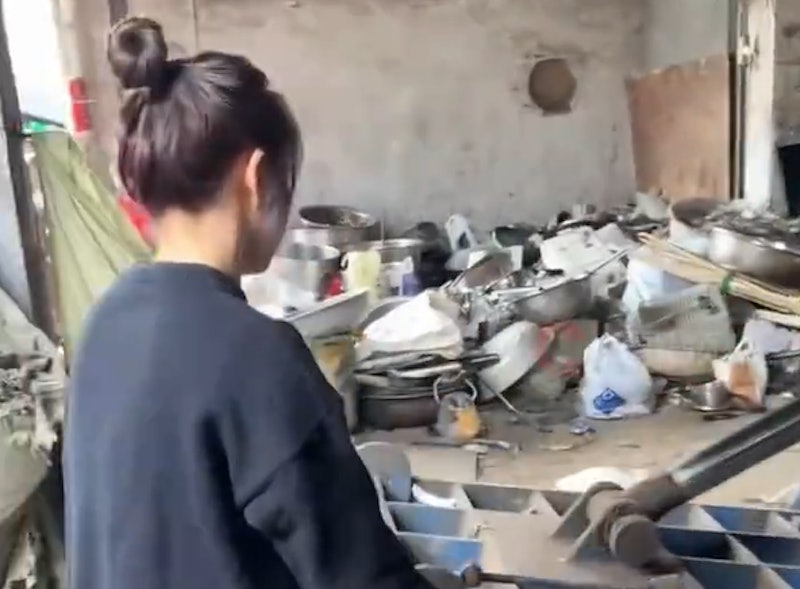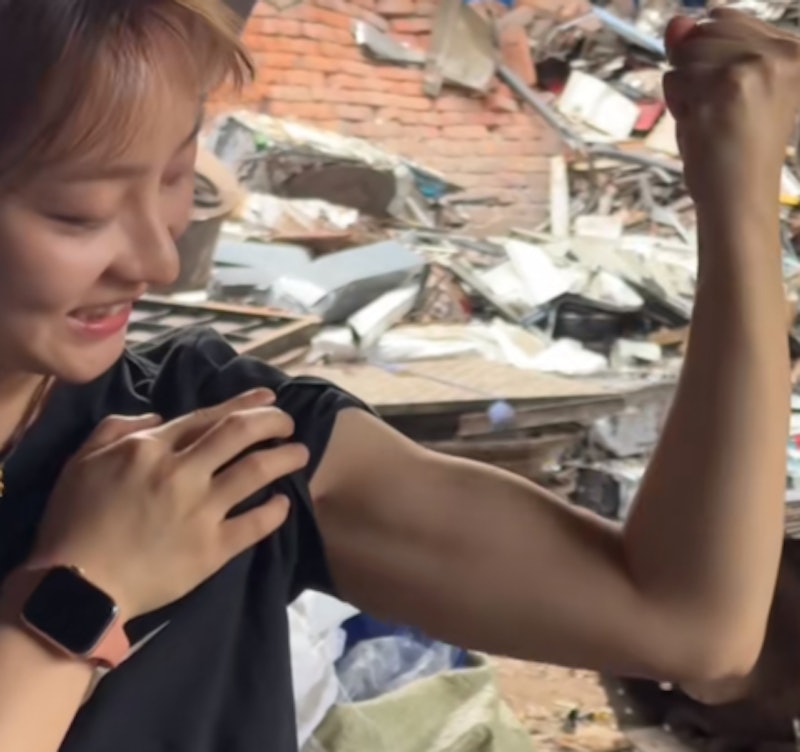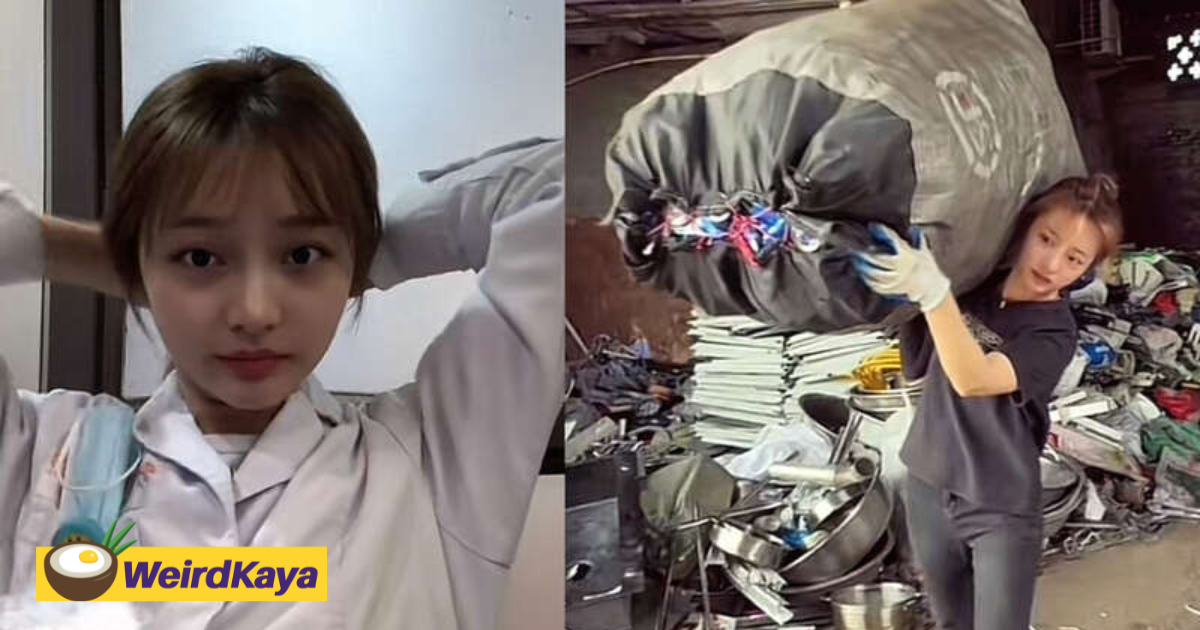A 26-year-old rehabilitation therapist from Chengdu, China, has captured attention online after revealing that she earns more money working at her family’s recycling station than from her full-time job at a private hospital.
Ms Xiong, who works by day as a rehab specialist, said she spends her evenings helping her parents sort and organise recyclable metal waste—a side hustle she claimed brought in a higher income than her hospital job.
Heads to recycling station right after work
According to 香港01, Ms Xiong starts her day at 8am and finishes her shift at 5.30pm at a private hospital, where she provides rehabilitation therapy for elderly inpatients.
But instead of heading home to rest, she heads straight to her parents’ recycling station to lend a hand.
I just want to help out more so my parents can do less,” she said, adding that she also sees it as an opportunity to pick up a new skill.
Her family’s recycling station mainly processes scrap metal.

“Metal waste has a lot of categories,” she explained.
“Each day, I sort and stack them properly before they’re sold off. I also help with heavy lifting—my arms have even started growing muscles!”
The station employs two additional workers to operate the machinery, but Ms Xiong is actively involved until about 10pm every night, after which she heads home with her parents.
From therapy room to scrap yard
Ms Xiong shared that she has been helping her parents since she was in primary school, so she’s not at all uncomfortable with the nature of the work.
“There’s nothing to be ashamed of. I can earn money, and that’s what matters,” she said, noting that her hospital salary is around 4,000 yuan (approximately RM2,600), while her earnings from the recycling station are even higher.

She added that she has been working in the hospital for four years since graduating with a degree in rehabilitation therapy. While the nature of the two jobs is vastly different, she says she manages the transition well.
I’m very particular about personal hygiene at the hospital, of course. But working with metal recyclables isn’t as dirty as people think. Sure, there might be some rust stains on my clothes, but it doesn’t feel unclean.”
With a full day of medical care and metal sorting behind her, Miss Xiong’s story has sparked admiration for her work ethic—and the unexpected earning power of a so-called “dirty job.”



